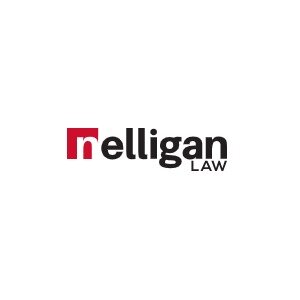Best Tax Lawyers in Ottawa
Share your needs with us, get contacted by law firms.
Free. Takes 2 min.
List of the best lawyers in Ottawa, Canada

KENTUADEI ADEFE, FOREIGN LEGAL CONSULTANT ON NIGERIAN LAW
15 minutes Free ConsultationAbout Tax Law in Ottawa, Canada
Tax law in Ottawa is governed by both federal and provincial legislation, which oversees the taxation system applicable to residents and businesses in the city. The federal government, through the Canada Revenue Agency (CRA), administers the Income Tax Act, which outlines income tax obligations for individuals and corporations across Canada, including Ottawa. Additionally, provincial tax obligations are governed by the Ontario provincial government. For residents and business owners in Ottawa, understanding local tax obligations involves a grasp of both federal and provincial tax laws, as well as any municipal considerations.
Why You May Need a Lawyer
There are several reasons why individuals or businesses in Ottawa may require legal assistance related to tax matters:
- Complex Tax Situations: Navigating complex tax scenarios, such as international taxation, estate planning, or corporate reorganizations, may require expert legal interpretation.
- Tax Disputes: Disagreements with the CRA or Ontario’s tax authorities regarding assessments, audits, or appeals can arise and may require professional representation.
- Tax Planning: Seeking legal advice for tax-efficient planning, including structuring businesses or personal finances to minimize tax liabilities while remaining compliant with the law.
- Compliance Issues: Ensuring compliance with ever-changing tax laws and avoiding potential penalties or legal issues.
Local Laws Overview
Ottawa's tax law landscape is shaped by multiple layers of regulation:
- Income Tax Act: This federal legislation outlines the rules for income tax in Canada, which apply to individuals and businesses located in Ottawa.
- Ontario Personal Income Tax: Residents of Ottawa are subject to provincial income tax, which is regulated by the Ontario Ministry of Finance.
- Property Taxes: Administered by the City of Ottawa, these are levied on real property based on assessed values.
- Harmonized Sales Tax (HST): A combination of federal and provincial sales taxes, currently set at 13% in Ontario, applicable to most goods and services.
Frequently Asked Questions
What is the basic tax rate on personal income in Ontario?
The basic provincial tax rate on personal income in Ontario ranges between 5.05% and 13.16% depending on income brackets, in addition to federal income tax.
How are property taxes determined in Ottawa?
Property taxes in Ottawa are calculated based on the assessed value of the property and the city’s tax rates, which can vary annually.
Can penalties be reduced for late tax filing in Ottawa?
Under specific circumstances, such as financial hardship or errors beyond your control, you may apply to the CRA or the provincial authority for penalty relief.
Are there tax credits available for Ottawa residents?
Yes, there are various tax credits available, including the Ontario Trillium Benefit and credits for medical expenses, education, and more.
What is the HST, and when does it apply?
The Harmonized Sales Tax (HST) is a 13% combined federal and provincial tax applied to the sale of most goods and services in Ontario.
How can I appeal a tax assessment decision?
To appeal a tax assessment, you must file a notice of objection with the CRA or Ontario tax authority within the prescribed time limits.
What is the difference between tax avoidance and tax evasion?
Tax avoidance is the legal use of tax laws to reduce one's tax burden, while tax evasion is the illegal non-payment or underpayment of taxes owed.
Do I need a tax lawyer for a CRA audit?
While not mandatory, having a tax lawyer can be beneficial for navigating legal complexities and ensuring your rights are protected during a CRA audit.
Is there a statute of limitations for tax debts?
In general, the CRA has ten years to collect a tax debt from the date the last assessment was made if no legal collection action has been taken.
Are there digital services available for tax payments in Ottawa?
Yes, both the CRA and the City of Ottawa offer online services for making tax payments, checking balances, and managing accounts.
Additional Resources
Below are some resources that could be helpful for individuals seeking information or assistance with tax-related issues in Ottawa:
- Canada Revenue Agency (CRA): Comprehensive federal tax information and assistance.
- Ontario Ministry of Finance: Resources and guidance on provincial tax rules.
- City of Ottawa Taxation Office: Information on municipal property taxes and rates.
- Tax Court of Canada: For matters involving federal tax disputes.
- Ontario Bar Association - Tax Law Section: Connects individuals with tax law professionals.
Next Steps
If you require legal assistance with tax matters in Ottawa, consider the following steps:
- Identify your specific tax concern, whether it's compliance, planning, or dispute resolution.
- Gather related documents and any correspondence with tax authorities.
- Consult with a tax lawyer or legal expert to discuss your situation and explore your options.
- Consider reaching out to local associations or using online directories to find qualified tax law professionals in Ottawa.
- Ensure all discussions with legal counsel are documented for future reference.
Lawzana helps you find the best lawyers and law firms in Ottawa through a curated and pre-screened list of qualified legal professionals. Our platform offers rankings and detailed profiles of attorneys and law firms, allowing you to compare based on practice areas, including Tax, experience, and client feedback.
Each profile includes a description of the firm's areas of practice, client reviews, team members and partners, year of establishment, spoken languages, office locations, contact information, social media presence, and any published articles or resources. Most firms on our platform speak English and are experienced in both local and international legal matters.
Get a quote from top-rated law firms in Ottawa, Canada — quickly, securely, and without unnecessary hassle.
Disclaimer:
The information provided on this page is for general informational purposes only and does not constitute legal advice. While we strive to ensure the accuracy and relevance of the content, legal information may change over time, and interpretations of the law can vary. You should always consult with a qualified legal professional for advice specific to your situation.
We disclaim all liability for actions taken or not taken based on the content of this page. If you believe any information is incorrect or outdated, please contact us, and we will review and update it where appropriate.








